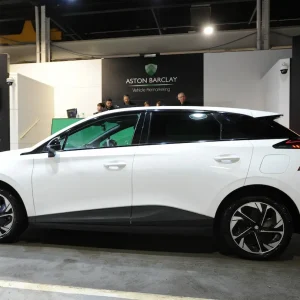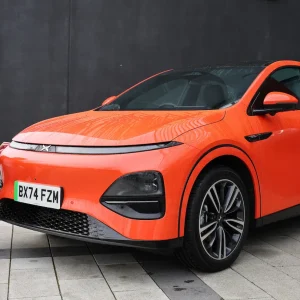Today is a significant day. Why? Because the UK’s first hydrogen fuel station has just opened at Birmingham University.
Tall oaks
Today is a significant day. Why? Because the UK’s first hydrogen fuel station has just opened at Birmingham University.
The university is running five fuel cell Microcabs in a two-year field trial. The vehicles have a maximum speed of 40mph and a range of about 100 miles.
Big deal, you may cry, one little fuel station, and on a university campus to boot. Okay, compared to 9400 refuelling stations serving 31 million cars it’s a drop in the ocean. But, mark my words, it is a landmark event.
Three more hydrogen stations are planned for London, and Transport for London is planning to introduce a fleet of 70 hydrogen-powered cars next year. By 2010, it is projected that there will be a dozen refuelling stations. Again, big deal, for now!
Alright, little urban Microcabs doing 40mph are not going to set the world alight but the automotive industry is committed to the development of fuel cell technology as the potential long-term solution to emission-free motoring.
Only last month at the ICFM Annual Members’ Conference we heard a very interesting presentation from Honda. According to its UK environment manager, John Kingston, the Japanese manufacturer considers hybrid vehicles the best short to medium-term solution but fuel cell technology the best long-term solution.
Kingston announced that a hydrogen-powered Honda FLX Clarity would be launched this summer in California, USA and it certainly looked the business. He stated that such vehicles should become a practical alternative by 2020 and I know many other manufacturers share Honda’s views.
As always, once the vehicle technology has been perfected, the stumbling block will be to put in place a nationwide infrastructure of refuelling points.
Naturally, the oil companies have a vested interest in us remaining dependent on unleaded petrol and diesel. That is clear from the failure to establish enough fuel pumps for biofuel vehicles. With few refuelling stations outside of Norfolk or Somerset, the death of 85% biofuel E85 seems imminent, much to the chagrin of Ford and Saab E85 green drivers.
Infrastructure is therefore key to the future success of hydrogen fuel cell vehicles and the campus at Birmingham University is the start.
As an 18th Century American lawyer and writer wrote: “Tall oaks from little acorns grow.”
The university campus in Edgbaston could have its place in history.





